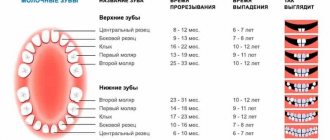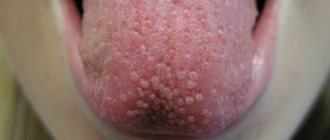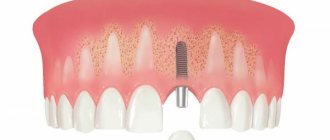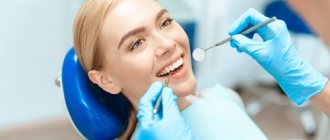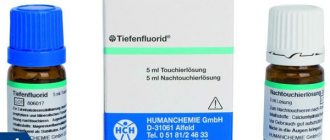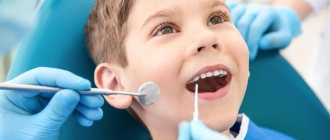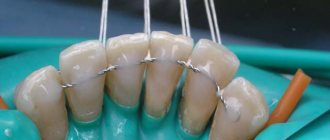The issue of going to the dentist during lactation is one of the most pressing. Dental treatment while breastfeeding is harmless, but necessary. A breastfeeding mother risks losing her teeth and passing on tooth decay to her baby by licking his spoons and pacifiers. Why does the fragility of mother’s teeth increase during this period? The fact is that, together with milk, it transfers calcium to the child, strengthening his body. At the same time, its lack in women provokes problems with the oral cavity. Therefore, the appearance of dental ailments during this period of time is not uncommon.
Indications for tooth extraction during lactation
During the procedure, drugs are used that can penetrate into mother's milk. If it is possible to postpone the date of the operation, then extirpation is carried out after the child is transferred to artificial nutrition. A dental unit is removed urgently during a purulent inflammatory process, as it contributes to the spread of infection throughout the body.
In what cases is surgery necessary:
- suppuration of a cyst, abscess, periostitis;
- unsteadiness due to periodontitis, periodontal disease of the third, fourth degree;
- odontogenic osteomyelitis, sinusitis, phlegmon;
- tooth root fracture;
- pulpitis, which cannot be cured due to the complexity of the canals;
- impacted figure eight, complicated growth of the third molar, pressure on neighboring teeth;
- deep caries that affected the root.
Unscheduled extraction is also performed in cases of severe, persistent pain.
The procedure has contraindications, including acute respiratory infections, chronic diseases in the acute stage, oral infections, sinusitis, severe pathologies of the liver, kidneys, heart, blood vessels, leukemia, bleeding disorders, and mental disorders.
What to do if potent drugs are prescribed?
When taking strong medications that should not get into the child's hands, you can feed the baby one of the milk formulas according to age. And in order not to interrupt the production of your own milk, you need to express at least six times a day.
Expressing milk while taking potent medications will help maintain lactation
Do you absolutely not want to transfer your child to artificial feeding? Then ask your doctor to postpone treatment for a while. During this time, accumulate the required amount of your own frozen milk.
Frozen breast milk
Please note that in the arsenal of modern pharmacology there are antibiotics that are approved for feeding. But even an approved drug is best taken so that there is a maximum gap in feeding after taking it.
| Antibiotic group | Note |
| Penicillins | Penicillins enter breast milk in low concentrations. But they can cause allergic reactions and loose stools. If allergic dermatitis is present, it is worth switching the child to formula. |
| Cephalosporins | Almost does not pass into breast milk and does not affect the health and development of the child. |
| Macrolides | They get into milk, but do not have a negative effect on the baby. Prescribed for allergies to penicillin and cephalosporin drugs. |
Preparing for removal
If the tooth begins to ache, the gums are swollen, and the breath smells bad, then this may indicate severe inflammation in the dental system. At the appointment, the dentist collects an anamnesis, conducts a visual examination and sends the woman for an x-ray. It is important for a nursing mother to avoid psycho-emotional stress, so she is allowed to take sedatives in advance.
The best option for maintaining mental stability and eliminating fear is oxygen sedation with nitrous oxide (NAS). It is done in the doctor's office before the procedure. The patient inhales the gas and falls asleep. Additionally, a local anesthetic is injected into the gum.
Content:
- Is it permissible to use local anesthetics?
- Anesthetics that can be used by nursing mothers
- Is it possible to feed a baby immediately after dental treatment is completed?
- How to reduce the likelihood of developing dental disease after childbirth
Many women experience the need for dental treatment while breastfeeding. This is due to the increased load on the body of a young mother, calcium deficiency, and hormonal changes. If you have a toothache, it is very important to seek qualified dental care as soon as possible. The doctor will tell you whether the disease can be treated without interrupting lactation.
The process of tooth extraction in a nursing mother
The procedure for a woman during lactation is no different from that performed for ordinary patients.
Extirpation of a dental unit is carried out in stages:
- antiseptic treatment of mucous membranes;
- anesthesia with local antiseptics or general anesthesia;
- applying forceps and disconnecting the ligament;
- rocking or dislocation;
- extraction from the hole;
- stop bleeding.
If the third molar from below is removed, the operation becomes more complicated. In order to pull it out, the doctor cuts the gum, removes part of the bone, divides the roots into fragments and removes them separately. To prevent infection, the wound is treated with antibacterial drugs. After all manipulations, the gums are sutured with absorbable or non-absorbable suture material.
Prevention of caries
Dental treatment during lactation is a necessary but unpleasant procedure. It is recommended to carry out preventive measures to prevent problems with the oral cavity.
You should start taking care of your teeth at the stage of pregnancy planning. Regular visits to the dentist, professional cleaning, removal of stones - all this will prevent many dental diseases that await a mother during the period of waiting for a child and lactation. If there are old fillings, it is necessary to assess their condition, replacing them with new ones if necessary. Remineralization or fluoridation procedure will help strengthen your teeth.
During pregnancy, dental treatment is allowed from the second trimester. As a preventive measure, it is recommended to use toothpastes with a high fluoride content, and you should brush your teeth every time after eating. It is necessary to remove plaque from the tongue, where a large number of bacteria are present. It will not be superfluous to rinse the mouth with solutions that have an anti-inflammatory and preventive effect.
The nutrition of pregnant and lactating women is of great importance. It is important to get the right amount of vitamins and minerals, especially calcium, which has a strengthening effect on teeth. It is necessary to consume as many fruits and vegetables and dairy products as possible. Additionally, it is worth buying a multivitamin complex at the pharmacy, but only after consulting a doctor.
X-ray and anesthesia during lactation
Before extirpation of a dental unit, an x-ray or computed tomography is almost always done. This is necessary to assess the structure, position and condition of the root system. To protect the patient from x-ray radiation, she is wearing a lead apron. It blocks dangerous waves, but after the procedure it is better to express the first batch of milk and pour it out.
For local anesthesia, private clinics use drugs approved during pregnancy: Ultracain, Ubistezin, Artifrin, Alfacain and similar medications. They do not contain toxic components that can cause allergies and other side effects. Primacaine has a short half-life, so feedings may not be missed.
Anesthesia is used only in extreme cases, if a complex and lengthy extraction is being performed. If general anesthesia is necessary, the child is temporarily transferred to artificial nutrition. During this period, the mother must express milk regularly to ensure milk production continues.
If antibiotic therapy is necessary after a complex removal, then breastfeeding will have to be stopped for several days. During long-term withdrawal, doctors recommend giving artificial formula not through a pacifier, but through a spoon or even a syringe without a needle. Otherwise, the baby may refuse to breastfeed, since the process of sucking milk from a bottle with a nipple is much easier.
Do I need to express milk after anesthesia?
If the medicine used for pain relief is compatible with breastfeeding, then there is no need to express. If the dose of the drug has been increased or the instructions prescribe using it with caution during breastfeeding, then it is better to express the milk after anesthesia. Your doctor can give you advice on this matter, taking into account the type of anesthesia you were given.
So
- Breastfeeding women are afraid to have their teeth treated because, in their opinion, drugs or x-rays may penetrate into the milk. radiation from x-rays.
- In fact, nursing mothers’ teeth must be treated, since infection from diseased teeth will harm the child more than modern medications compatible with breastfeeding.
- In order not to harm the baby when using anesthesia, you need to tell the doctor that you are breastfeeding, and he will select anesthetics that are not contraindicated during breastfeeding.
- After anesthesia, you need to express only if the dose of the drug was increased, if medications containing adrenaline or outdated painkillers were used.
(0 ratings; article rating 0)
Share Share Share
Recommendations for the recovery period
In order to avoid complications after surgery, you need to follow all the doctor's advice. After the procedure, the doctor applies a cotton swab to stop the bleeding. It should be held for no more than 10 minutes, otherwise the blood clot will dry out and come off along with the cotton wool. With high blood pressure, bleeding continues for a longer time, so the tampon can be kept in place for 15 - 20 minutes.
In the first days you cannot:
- overheat the body, apply warming compresses;
- engage in heavy physical labor and sports;
- lick a blood clot;
- eat hot, spicy, rough food;
- drink through a straw;
- smoke;
- touch the socket with a toothbrush and other objects.
You are allowed to eat after 3-4 hours. The issue of feeding a child should be discussed with a doctor. Local anesthetics practically do not enter the blood, and components penetrate into mother's milk in minimal quantities. If the doctor has not prescribed other medications, then you can feed the baby within a few hours.
After the anesthetic wears off, pain appears. Possible increase in body temperature. To relieve acute symptoms, you can take Paracetamol, Ibuprofen, Naproxen. You can reduce pain and swelling by using cold compresses.
Rinsing your mouth and brushing your teeth is allowed on the second day. For rinsing, pharmaceutical preparations are used: Romazulan, Chlorhexidine, Miramestin. They will prevent the development of infection and inflammation. You can rinse your mouth with an aqueous solution of baking soda and salt. To improve the healing of damaged tissue, decoctions of oak bark, chamomile, and calendula are used.
Pain relief during treatment
At any age of the child, you can easily treat caries and gum disease. But you must tell the dentist at your first visit that you are feeding your baby. Then the doctor will select safe medications.
Don't forget to tell your dentist that you are breastfeeding your baby.
Most local anesthesia is short-acting. This means that it circulates in the blood for a short time.
During lactation, dentists recommend using:
- "Lidocaine";
- "Ultracaine".
"Lidocaine"
"Ultracain DS"
Important! Both drugs are eliminated from the body within three to six hours, depending on the dose. Therefore, it is recommended to feed your baby immediately before visiting the dentist and stock up on a portion of breast milk in advance for the next feeding. Once you return, you need to express and discard the milk. And the next milk will be completely safe for the baby.
You need to stock up on breast milk before visiting the dentist
Prevention measures
Extraction of a dental unit is carried out in cases where the disease is advanced or therapeutic treatment does not have an effect. Since teeth decay faster during pregnancy, it is necessary to carry out proper oral hygiene and undergo a preventive examination by a dentist while carrying a child. If pathology is detected in the early stages, removal will not be required.
Doctors' recommendations during lactation:
- brush your teeth twice a day;
- rinse your mouth after every meal, use dental floss;
- eat well;
- limit consumption of sweet foods.
During lactation, teeth can and should be treated. Even if anesthesia is performed with lidocaine, there is no need to worry. You just need to check with your doctor for how long you should refrain from feeding. The components of the drug enter milk in minimal concentrations, so when used in small dosages they will not harm the baby’s health.
Dental treatment while breastfeeding
If you are a nursing mother and are faced with dental problems, then visiting a dentist is absolutely necessary to prevent the harmful consequences of “neglected” dental health.
First you need to understand the possible causes of tooth pain during breastfeeding. There are a number of problems that can cause young mothers to feel discomfort in their teeth:
- Gingivitis
- Periodontitis
- Hypersensitivity.
- Caries and pulpitis.
This is inflammation of the gums, the causes of which can be a lack of vitamin C, smoking, decreased immunity, poor nutrition, and malocclusion. But the main reason is the proliferation of bacteria due to insufficient oral hygiene and accumulated plaque. The first symptoms of gingivitis are redness and itching of the gums, increased bleeding, inflammation and swelling.
This inflammation is one of the most severe forms of gum disease and can lead to permanent tooth loss. Such dental pathology can develop if gingivitis is not treated in time. The first symptoms are bleeding when brushing your teeth, red or swollen gums, and bad breath.
For the normal development of a child’s body, he needs a number of useful substances, including calcium. If a young mother does not receive enough microelements in her diet, then over time they will be susceptible to leaching from the body. This will lead to the destruction of enamel and increased fragility of bones, and as a result will lead to problems with teeth. The first symptoms are increased tooth sensitivity, sharp short-term pain in the teeth.
Caries are small spots on the surface of the tooth that appear due to the influence of harmful external and internal factors on the teeth and leading to inflammatory processes in the hard layers of the tooth. Pulpitis is an inflammation that flows from deep caries, which reaches the root canals and nerve endings, affecting them. Diseases of caries and pulpitis can be caused by simple non-compliance with oral hygiene, poor nutrition, as well as gastrointestinal diseases. Symptoms of these dental pathologies are acute pain from sweet or cold foods, severe aching pain that lasts 10 minutes or more.
Dental treatment under a microscope
Get an individual consultation with a specialist at the TopSmile clinic and find out whether it is possible to treat teeth during lactation
Get acquainted with the service
What to do if toothache occurs during lactation?
If you have a toothache, you should immediately contact a specialist who will conduct diagnostics to identify pathologies and give you accurate recommendations on the problem. However, due to the busy life of a nursing mother, there is not always time for an emergency trip to the doctor. This means that you don’t have to endure toothache before visiting the dentist’s office. You can reduce pain using the following procedures:
- Remove food debris that has fallen into the gaps between the teeth, which irritate the nerve upon contact;
- Apply a cotton swab moistened with Dent drops to the area with painful symptoms - this will reduce the pain and soothe the tooth;
- Rinse your mouth with solutions of furatsilin, hydrogen peroxide, chlorhexidine or potassium permanganate;
- Rinse your mouth after meals with a baking soda solution;
- Rinse your mouth with a decoction of oak bark;
- After consulting with your doctor, you can take a drug based on ibuprofen or paracetamol.
But you should not rely on the fact that such procedures will bring a long-term effect of peace and lack of discomfort. Only a dentist can prescribe real treatment that will help eradicate the source of pain and finally solve the problem. At the same time, do not forget to inform the nursing mother about your situation so that the specialist can choose the most appropriate medications for treatment and prescribe the necessary procedures that will not harm you and your baby.
What dental procedures should you avoid during lactation and why?
During the period of breastfeeding, do not forget that there are also dental procedures that you should avoid:
- Teeth whitening - it is contraindicated during lactation, since rehabilitation at this time occurs more slowly and can cause complications associated with a lack of calcium, which will lead to the appearance of enamel defects and the development of caries;
- The installation of dental implants is allowed only if the person is healthy and the body is able to endure a complex implantation operation and the adaptation period of the implant without much harm to it. During breastfeeding, women experience a lack of nutrients in the body, accompanied by weakness due to constant lack of sleep and anxiety. In addition, after implantation of dentures, the doctor must prescribe a course of antibiotics, which is undesirable for women during breastfeeding;
- Antibiotic therapy is an effective way to combat bacteria that affect the oral mucosa, which causes inflammation of the gums and pain in the teeth;
- The use of certain pain medications (analgin, citramon). The use of these drugs is prohibited, as they contain aspirin and caffeine, which are very dangerous for the child because they increase blood circulation. Analgin reduces the number of platelets and leukocytes, which leads to the destruction of bone marrow.
Is anesthesia acceptable during breastfeeding?
Today, almost every procedure related to dental treatment is performed using anesthesia. The doctor, taking into account the patient’s characteristics, selects the most suitable drug that does not cause negative reactions in his body. Anesthesia helps to get rid of pain during treatment and undergo surgery to eliminate dental pathology without experiencing discomfort and fear.
Problems that require local anesthesia:
- Root canal treatment;
- Tooth extraction;
- Removal of dental cysts;
- Fixing the pins.
It is possible to perform an anesthesia procedure for dental treatment during breastfeeding. In this case, it is necessary to choose the right anesthetics. For nursing women, short-acting local anesthetics are used, which are eliminated from the body 5-6 hours after administration and reduce sensitivity only in those places where it is necessary. These include:
- Novocaine - used in treatment with extreme caution if the intended benefit to the nursing mother outweighs the risks of harming the newborn baby;
- Lidocaine is one of the most commonly used anesthetic agents due to its low concentrations, which remain in the blood and milk of the nursing mother, and its short-lived effect;
- Articaine is also one of the relatively safe medications, characterized by minimal concentrations, due to which there is no need to interrupt breastfeeding after visiting the dentist.
If you have doubts about these drugs, you can consult a specialist who will select for you an individual anesthesia that will not harm either you or your child. But you should not abstain from the anesthesia procedure in any case, since during dental operations the body has a stress reaction, subsequently releasing adrenaline, which can cause excitement of the nervous system and tension on an emotional level in an infant.
Is it possible to feed a child after anesthesia?
Of course, you can feed a baby, but you need to remember precautions and know that anesthesia is finally removed from the body only after 5-6 hours. Therefore, you should follow the advice of doctors who recommend feeding the baby before the procedure and stocking up on breast milk. After anesthesia, you should drain the milk, which may have contained some of the anesthesia drug, by feeding the baby with milk that was expressed earlier.
Prevention of caries during lactation.
During lactation, women experience enormous stress on the body, but no one is immune from the occurrence of any diseases or pain. Therefore, it is worth following some recommendations to prevent situations that can negatively affect your health, psychological state and mood:
- Follow the rules for oral care and hygiene;
- Reduce consumption of sweet foods;
- Brush your teeth regularly with a quality brush and toothpaste without harmful chemicals;
- Do not consume too cold or hot foods and drinks;
- After each meal, rinse;
- Be sure to include in your diet foods rich in microelements and vitamins;
- Periodically visit the dentist's office to check the condition of the dentition and further consultation on maintaining dental health.
Caring for a nursing mother during surgery
Before the intervention
- A breastfeeding mother should receive all necessary assistance to continue breastfeeding while in hospital.
- If possible, it is advisable to consider postponing the intervention to a later period - when the child is older.
By 6-12-18 months, the child’s body reaches greater maturity - the function of the kidneys and liver improves, which is necessary for the rapid and effective neutralization and elimination of drugs, the regulation of breathing improves, which reduces the likelihood of apnea, etc. [5,6]. In addition, after 6 months, the share of breast milk in the child’s diet gradually decreases (and the child’s weight increases), which helps reduce the drug load [2].
- Before preparing for the intervention, it is important to ensure adequate hydration with as little fasting as possible to prevent dehydration and decreased milk production [5]. If possible, the breastfeeding mother can be placed first on the day of intervention [6].
- Immediately before the intervention, the mother should be given the opportunity to feed the baby and express milk to feed the baby during the intervention and recovery after it [9].
Many studies have confirmed the safety of breastfeeding after maternal anesthesia [6].
During the intervention
- It is preferable to use local anesthesia.
- If possible, limit the prescription of medications and use them in minimal doses.
- Monitor the mother’s condition and ensure normovolemia with infusion therapy [5].
After the intervention
- After surgery, for pain relief it is preferable to use less toxic drugs - paracetamol / NSAIDs or opiates in the lowest possible dose and for the shortest course. It is advisable to choose antiemetic drugs with minimal sedative effects [5,6].
Despite the fact that NSAIDs pass into breast milk in small quantities due to their high ability to bind to plasma proteins and low lipid solubility, they should be avoided if the child of a nursing mother has heart pathology (ductus-dependent heart disease) [9].
When using opiates (usually with general anesthesia), the woman must be vigilant regarding the condition of the child and the appearance of symptoms such as excessive drowsiness, lethargy, irregular breathing rhythm, etc. If long-term pain relief with narcotic drugs is necessary - more than 4 days in a row - it is advisable to consider the question of monitoring the vital functions of the child [5,9].
- It is highly desirable to resume breastfeeding or pumping as soon as possible.
- The mother should be warned about the dangers of co-sleeping with the child during the period of taking and exposure to medications (painkillers), as they inevitably reduce vigilance and promote deeper sleep, which is unsafe for the child who is in the same bed with her [10].
Additional Resources
Centers for Disease Control and Prevention (CDC) Proper Handling and Storage of Breast Milk www.cdc.gov/breastfeeding/recommendations/handling_breastmilk.htm Provides information on how to safely handle and store breast milk.
Breastfeeding USA www.breastfeedingusa.org Provides breastfeeding information and support.
International Lactation Consultant Association www.ilca.org 888-452-2478 Find an IBCLC to find an International Board-Certified Lactation Consultant Lactation Consultant®, IBCLC) and working close to where you live.
United States Lactation Consultant Association https://uslca.org/ Find an IBCLC to find an International Board-Certified Lactation Consultant Consultant, IBCLC) and working near your place of residence.
